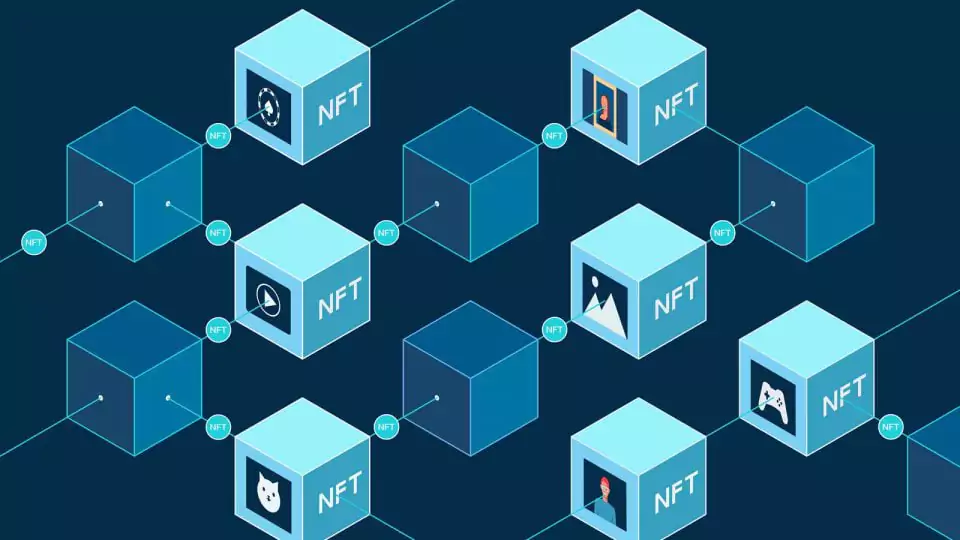
The future role of blockchain technology has sparked considerable debate. A few years ago, it was heralded as a game-changer for numerous industries, yet its fervor has seemingly waned. Questions arise regarding its true transformative capacity, especially when considering the expertise of those who champion it. This article dives into this complex issue, discussing the potential and pitfalls of blockchain and artificial intelligence (AI) technologies, focusing on the crucial difference between hype and reality.

✅ AI Essay Writer ✅ AI Detector ✅ Plagchecker ✅ Paraphraser
✅ Summarizer ✅ Citation Generator
Key Takeaways:
- Expectations for blockchain and AI often exceed their current practical applications due to hype.
- Despite skepticism, AI and LLMs have shown real-world utility.
- High energy use, regulatory challenges, and user comprehension limit widespread adoption of these technologies.
The Hype Cycle of Emerging Technologies
The hype surrounding emerging technologies like blockchain and AI can often outpace their actual applicability, leading to a disconnect between expectation and reality. Numerous voices in the industry, while acknowledging the hype cycles these technologies undergo, express doubt over blockchain’s extensive usability due to its significant computational requirements and narrow range of functions.
“Blockchain does one thing very well, and that’s to create an immutable sequence of related pieces of data. But it requires massive compute resources to do this”
Similar doubts exist about AI, with some people voicing skepticism about its transformative potential, suggesting that much of the excitement centers around how ‘cool’ it appears rather than its real-world impact. However, others highlight the many practical applications of AI in today’s world, with large language models (LLMs) such as ChatGPT aiding a myriad of tasks and improving user experiences across platforms.
The exuberance in adopting new technologies is also partially fueled by venture capitalists who often fund projects focusing on trendy, hyped tech, giving rise to short-term gains for entrepreneurs and employment opportunities for engineers. This trend, however, often sidelines the question of whether the technology adds true value to its end-users.
Simultaneously, LLMs and AI technologies are also facing their hype cycle. While critics believe that these systems are far from achieving human-like general intelligence, supporters see significant potential, particularly in applications like personal assistants. They envision a future where AI becomes much more responsive and useful to a wider range of individuals, improving their day-to-day lives.
However, some argue that people often fail to recognize the potential of technologies like blockchain due to a lack of vision or understanding of their possible applications. Use cases exist, ranging from ensuring ownership of digital goods, offering a safeguard against financial crises, to improving government transparency. As with the early days of the internet, the challenge for proponents of these technologies is to make them less complex and more seamless for the average user.
As one commentator advised:
“Take a couple of deep breaths before replying; I’m just a normal person discussing what I think about some interesting technologies.”
Indeed, rational discourse is crucial as we continue to explore and shape the digital future.
The Pros and Cons of Blockchain Technology
Blockchain technology has undoubtedly captured global attention due to its potential to disrupt a variety of sectors. On the positive side, blockchain’s most promising aspect lies in its ability to create an immutable, transparent ledger of transactions. This feature makes it incredibly effective in industries that require traceability and fraud prevention, such as finance and supply chain management. Moreover, blockchain offers a decentralized model, enabling peer-to-peer transactions without the need for intermediaries, thus facilitating faster, cost-efficient operations. The technology also opens the door for enhanced digital ownership, potentially resolving issues around digital goods’ ownership rights.

However, blockchain isn’t without its drawbacks. The technology’s most significant disadvantage is its excessive energy consumption, primarily due to the proof-of-work consensus mechanism employed by many blockchains, like Bitcoin. Such resource-intensive operations raise questions about its sustainability and environmental impact. Furthermore, the immutability of blockchain, while a strength, can also be a drawback as it doesn’t allow for the correction of mistakes or fraudulent transactions once they are recorded. Finally, its decentralization, though revolutionary, presents challenges regarding regulation, security, and privacy. These issues, coupled with a lack of widespread understanding and user-friendly applications, often hinder blockchain’s broader adoption. Therefore, it’s essential to consider both the advantages and challenges of blockchain technology while discussing its future role.
| Blockchain Features | Pros | Cons |
|---|---|---|
| Immutability | Ensures a transparent, unalterable ledger of transactions | No option to correct errors or fraudulent transactions once recorded |
| Decentralization | Enables peer-to-peer transactions without intermediaries, reducing costs and time | Presents challenges regarding regulation, security, and privacy |
| Energy Consumption | N/A | Excessive due to proof-of-work consensus mechanism, raising sustainability and environmental concerns |
| Digital Ownership | Potential to solve digital goods’ ownership rights issues | N/A |
| Accessibility and Understanding | N/A | Widespread understanding and user-friendly applications are lacking, hindering broader adoption |
Read more:
Is ChatGPT Losing Its Coding Edge?
Java and Go: A Comparative Analysis of Two Powerful Programming Languages
Harvard Introduces AI To Teach Coding In Fall Semester
Follow us on Reddit for more insights and updates.





Comments (0)
Welcome to A*Help comments!
We’re all about debate and discussion at A*Help.
We value the diverse opinions of users, so you may find points of view that you don’t agree with. And that’s cool. However, there are certain things we’re not OK with: attempts to manipulate our data in any way, for example, or the posting of discriminative, offensive, hateful, or disparaging material.